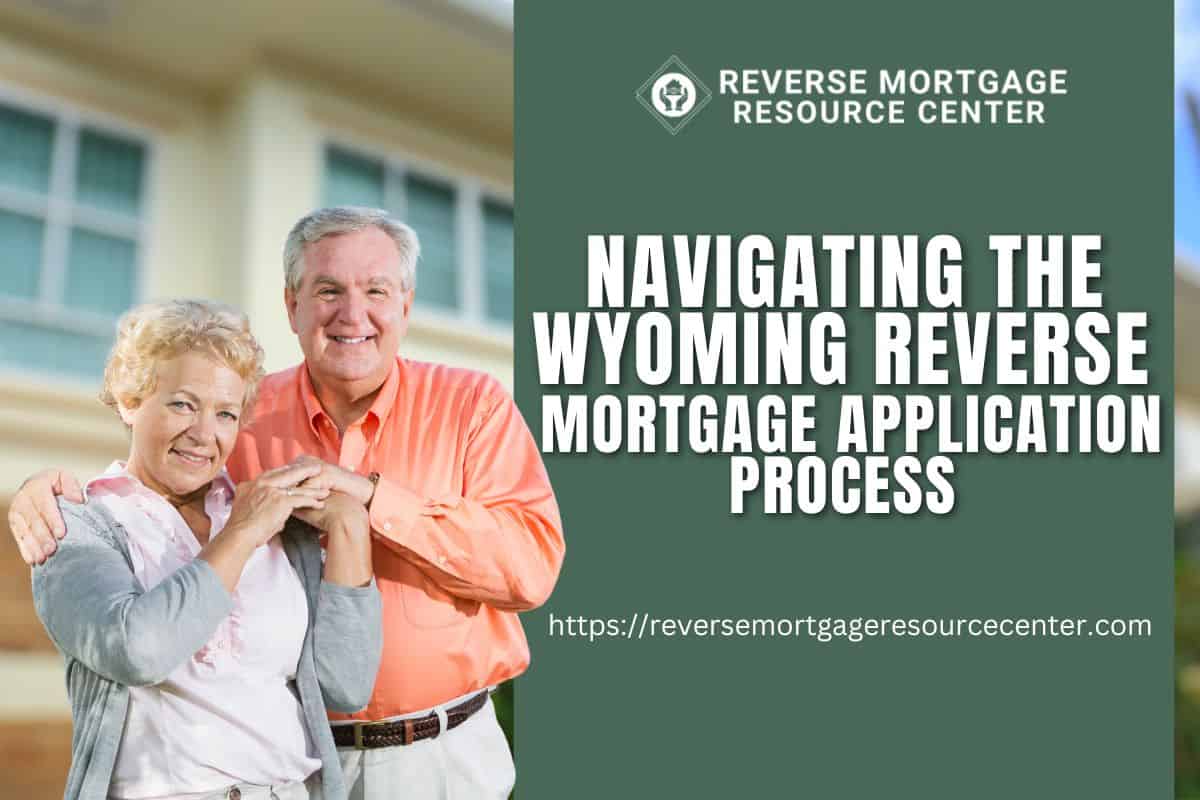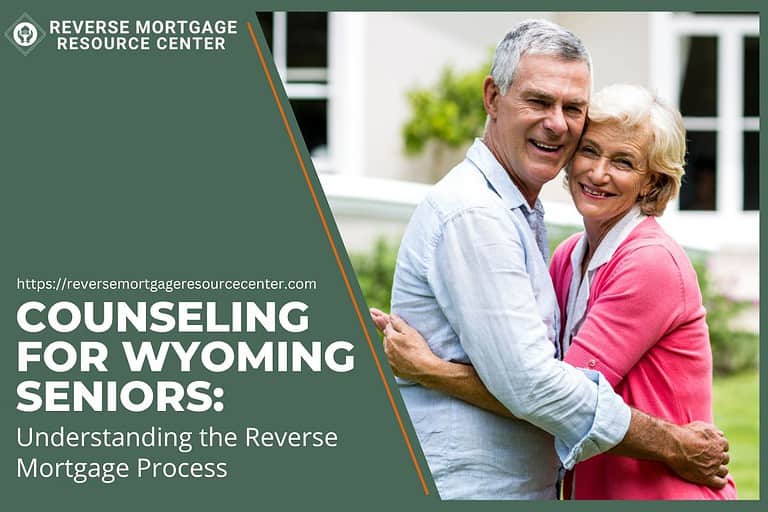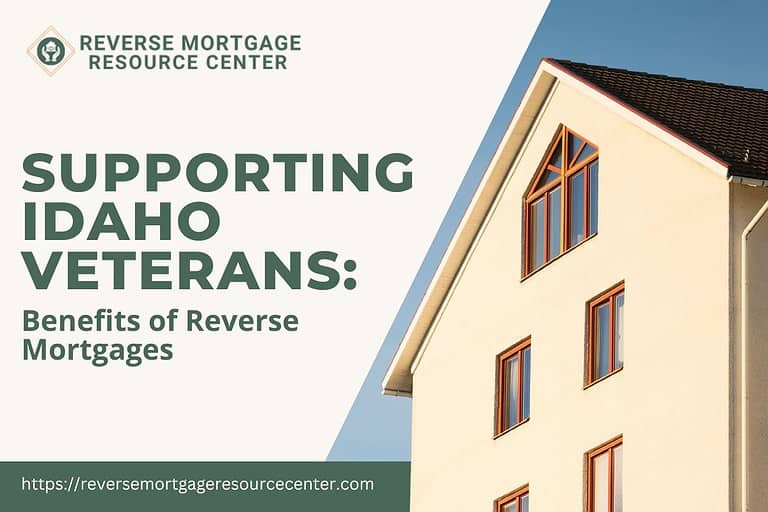Navigating the Wyoming Reverse Mortgage Application Process
Retirement is a time to unwind, explore, and enjoy the rewards of your labor. However, financial problems can cast a shadow over this beautiful phase of life for many seniors in Wyoming and across the country. Rising healthcare costs, property taxes, and other unanticipated bills can deplete retirement savings, leaving seniors looking for strategies to ensure financial security.
The reverse mortgage is a strong tool to help seniors tap into their home equity and guarantee a more comfortable retirement. This detailed guide will examine the Wyoming reverse mortgage application process, debunk common myths, and provide helpful insights to help you make informed financial decisions.
Understanding the Basics: What Is a Reverse Mortgage?
A reverse mortgage is a one-of-a-kind financial solution tailored to homeowners aged 62 and up. In contrast to regular mortgages, which require borrowers to make monthly payments to the lender, a reverse mortgage allows homeowners to convert a portion of their home equity into tax-free monies, without giving up ownership of their properties.
Key features of a reverse mortgage:
No Monthly Payments: Borrowers who use a reverse mortgage are not required to make monthly mortgage payments. Instead, the loan balance accumulates over time.
Tax-Free Funds: Reverse mortgage funds are normally tax-free, making them a useful source of income.
Loan Repayment: The loan is repaid when the homeowner(s) sell the property, move out, or pass away. The loan is repaid by paying the balance or selling the home. Any proceeds from a sale minus the repayment amount. In the event the home is sold after one’s passing away, any remaining equity belongs to the heirs.
Loan Types: Reverse mortgages are classified into Home Equity Conversion Mortgages (HECMs) and proprietary reverse mortgages. The Federal Housing Administration (FHA) insures HECMs, the most frequent variety.
Now that we’ve covered the basics of reverse mortgages, let’s look at the Wyoming reverse mortgage application procedure.
Step 1: Eligibility and Counseling
Determine Eligibility
The first step in the Wyoming reverse mortgage application procedure is determining whether you match the basic eligibility requirements. To be eligible for a reverse mortgage in Wyoming, you must:
- Be at least 62 years old.
- Own the house outright or have significant equity in it.
- Make the house your primary residence.
- Complete a mandatory counseling session with a HUD-approved counselor.
Counseling Session
You must attend a counseling session before proceeding with your reverse mortgage application. This workshop is intended to ensure that you completely comprehend the implications of a reverse mortgage and can make an informed decision.
A trained counselor will do the following during the counseling session:
- Explain the operation of reverse mortgages.
- Examine the costs of obtaining a reverse mortgage.
- Discuss different financial possibilities.
- Address any issues or questions you may have.
Counseling is an important component of the process since it protects seniors from potential fraud and ensures they understand the financial commitment required.
Step 2: Choosing a Lender
After you’ve finished the counseling session and are certain that you want to proceed with a reverse mortgage, the following step is to choose a lender. When it comes to choosing a lender, Wyoming citizens have various options, including:
- Banking institutions and credit unions
- Mortgage lenders
- Lenders on the internet
It’s critical to do your homework and evaluate numerous lenders to choose one with competitive rates, outstanding customer service, and a solid reputation. You can also get suggestions from friends or family members who have used a reverse mortgage.
Step 3: Application and Underwriting
Completing the Application
After you’ve decided on a lender, you’ll need to fill out a reverse mortgage application. You will be asked to supply details about your income, assets, and credit history on the application. You will also be required to submit home-related papers, such as property assessments and confirmation of homeowners insurance.
Underwriting Process
When you submit your application, the lender will begin the underwriting process. The lender will review your financial qualifications and the worth of your home at this step. The underwriter will examine your credit history, income, and spending to ensure you can keep up with your monthly commitments, such as property taxes and homeowner’s insurance.
Step 4: Closing and Disbursement of Funds
Closing the Loan
If your application is accepted, closing the reverse mortgage loan is the following step. You will sign the loan documentation during the closing, and the lender will explain the loan’s terms and conditions. You should carefully peruse the documents and ask any questions you may have.
Disbursement of Funds
Once the transaction is closed, you have numerous alternatives for collecting your reverse mortgage funds:
Lump Sum: You can receive a significant amount in one lump sum.
Line of Credit: You can set up a line of credit to draw on as needed.
Monthly Payments: You can select to receive monthly payments for a defined time, or for the duration you reside in the home.
Combination: You can mix different distribution types to fit your financial demands.
Step 5: Responsibilities and Loan Repayment
Financial Responsibilities
While a reverse mortgage can bring financial freedom, it also imposes certain obligations. As a reverse mortgage borrower in Wyoming, you must:
- Continue to make your home your primary dwelling.
- Maintain and keep the property in good condition.
- Pay your property taxes, homeowners insurance, and any homeowners association payments that may apply.
Loan Repayment
A reverse mortgage repayment is triggered when the homeowner(s) vacate the property, whether that be by:
- Moving out of the home.
- Selling the home.
- Passing away.
When the loan matures, the borrower or their heirs might choose to repay the loan balance. They may also choose to sell the home. The proceeds from the sale of the house will pay the outstanding balance of the loan with any remaining equity belonging to their heirs.
Dispelling Common Myths About Reverse Mortgages
Myth 1: The Lender Takes Ownership of Your Home
The lender does not take ownership of your house. The borrower owns the residence during the loan term. The lender only has a claim on the equity in the residence should the home not remain in good repair, the homeowner does not keep taxes, insurance, or dues paid on time, or the homeowner vacates the property as discussed previously.
Myth 2: You Can Owe More Than Your Home Is Worth
Yes, a reverse mortgage loan balance grows over time. However, if the loan balance exceeds the value of the home, the “non-recourse” provisions of the FHA-insured HECM program will apply. This means that the FHA will be responsible for covering any loan balance above the value of the home. In no instance will the heirs and/or successors be required to pay any loan amount in excess of the home’s appraised value. Most people fear that any remaining loan balance will be forced upon the heirs and/or successors, which is simply untrue and why this myth is so prevalent.
Myth 3: Reverse Mortgages Are a Last Resort
Reverse mortgages are more than a last resort for seniors in financial distress. They can be a strategic financial tool for seniors who want to improve their retirement lifestyle, cover unforeseen bills, or establish a financial safety net.
The Benefits of a Reverse Mortgage in Wyoming
Now that we’ve navigated the reverse mortgage application process and addressed common misconceptions, Wyoming residents must realize the benefits that a reverse mortgage can provide:
Financial Flexibility: A reverse mortgage gives you access to tax-free income, allowing you to meet day-to-day expenses, healthcare costs, or even take that dream trip.
No Monthly Mortgage Payments: The absence of monthly mortgage payments is one of the most significant benefits of a reverse mortgage. This can relieve financial stress during retirement because monthly mortgage payments won’t burden you.
Stay in Your Home: With a reverse mortgage, you can continue to live in your house for as long as it is your primary residence. This allows you to mature in place while remaining independent.
Protecting Your Spouse: If you are married and the primary borrower on a reverse mortgage, your spouse can dwell in the property even after you pass away. Knowing that your partner is in good hands gives you peace of mind.
Tax-Free Funds: The funds you receive from a reverse mortgage are not taxable income, allowing you to make the most of your money.
Flexible Disbursement Options: You can adapt the reverse mortgage to your unique needs by selecting from various disbursement choices, such as getting a lump sum, a line of credit, or monthly installments.
Estate Planning: Reverse mortgages might be part of a larger estate planning strategy. You can safeguard other assets for your heirs by converting home equity to cash.
Protection Against Market Fluctuations: The FHA-insured HECM program assures that you will never owe more than the appraised worth of your house, acting as a safety net in the event of a decline in property values.
Considerations and Precautions
While reverse mortgages have numerous benefits, it is critical to examine the following criteria and exercise caution when navigating the application process:
Loan Costs: Fees and costs associated with reverse mortgages include origination fees, mortgage insurance payments, and closing costs. Comprehending these costs and incorporating them into your decision-making process is critical.
Impact on Heirs: When you pass away or move out of the house, the loan balance becomes due and payable. In the instance of your passing, your heirs and/or successors will have options (such as selling the home). You want to share your plans and decisions to minimize future surprises.
Financial Planning: Before applying for a reverse mortgage, consult a financial counselor or a retirement specialist to confirm that it is consistent with your overall financial goals and retirement plans.
Home Maintenance: As a reverse mortgage borrower, you are responsible for the upkeep of your home. Neglecting upkeep might result in debt acceleration and potential foreclosure.
REVERSE MORTGAGE RESOURCE CENTER ~lIVE lIFE ON yOUR tERMS~
Our Lending Team has been serving our clients since 2004. We are passionate about serving our clients with integrity to help them achieve their financial goals.







